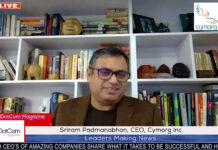AI in the preventive health screenings is emerging as one of the most powerful tools in modern healthcare, fundamentally transforming how diseases are detected, monitored, and prevented. As our global healthcare systems strive to shift from reactive to proactive models, AI in the preventive health screenings becomes indispensable in predicting potential health threats before they become life-altering conditions. Whether it’s early cancer detection, cardiovascular monitoring, or identifying genetic predispositions, AI in the preventive health screenings is reshaping the future of how individuals, doctors, and entire populations approach wellness and longevity. From big data algorithms to personalized health tracking, the integration of artificial intelligence into routine screening is no longer a futuristic concept—it’s a present-day revolution that families, clinicians, and policymakers cannot afford to overlook.
1. AI Transforms Early Detection from Reactive to Proactive
Traditionally, preventive health screenings relied heavily on periodic testing and general population data. However, AI introduces a dynamic layer of intelligence that allows early detection based on an individual’s unique risk profile. Instead of waiting for a specific age or symptom to trigger a screening, AI algorithms analyze large-scale data such as genetic markers, lifestyle inputs, family history, and environmental exposure to determine when and how screenings should occur.
This shift from reactive to proactive care means that conditions like colon cancer, breast cancer, and heart disease can be flagged even before traditional markers appear. AI-powered imaging tools now identify anomalies that human eyes might miss—enhancing accuracy and reducing false positives. By enabling earlier interventions, these technologies can significantly improve outcomes and lower long-term treatment costs.
2. Personalized Screening Schedules Tailored to You
One-size-fits-all screening schedules are becoming outdated thanks to the personalization enabled by AI. Rather than recommending a mammogram for every woman at age 40 or a cholesterol check every five years, AI can analyze your individual data and suggest more precise timing and frequency.
This individualized approach considers factors such as DNA sequencing, biometric data from wearables, and past medical records. It can also adjust in real-time based on emerging health patterns. For example, if your wearable device indicates rising blood pressure trends and decreased sleep quality, AI may suggest an earlier cardiovascular screening than typically recommended.
This degree of personalization ensures that preventive screenings are timely, relevant, and deeply aligned with the patient’s evolving health status—enhancing early intervention capabilities and preventing unnecessary procedures.
3. AI Enhances the Accuracy of Diagnostic Imaging
Radiologists have long used medical imaging to detect abnormalities, but AI now adds a powerful layer of precision and consistency. Machine learning algorithms trained on millions of X-rays, MRIs, CT scans, and ultrasounds can recognize minute changes in tissue or organ structure that even experienced clinicians may overlook.
For instance, AI is now capable of identifying breast tumors in mammograms with accuracy that rivals or exceeds that of seasoned radiologists. Similarly, AI tools are being used to detect lung nodules, brain aneurysms, and prostate irregularities in their earliest forms.
These AI enhancements are not just about better detection—they also help reduce diagnostic errors and minimize false positives, which often lead to unnecessary biopsies, emotional distress, and financial burdens. By improving both sensitivity and specificity, AI brings greater confidence and reliability to preventive screenings.
4. Predictive Analytics Can Forecast Health Risks Years Ahead
AI’s true power lies in its predictive capabilities. By analyzing large, multidimensional datasets over time, AI systems can detect subtle correlations that signal future disease risks. This includes not only genetics and lab results, but also lifestyle data—like physical activity, stress levels, diet, and social determinants of health.
These systems can identify people at high risk for diseases like type 2 diabetes, stroke, or Alzheimer’s disease years before symptoms manifest. Armed with this information, clinicians and patients can take preemptive measures—whether it’s lifestyle changes, medication, or further screening.
Insurance companies and public health agencies are also leveraging predictive analytics to design early intervention strategies that reduce the burden of chronic disease across entire populations. The long-term impact: healthier individuals and more efficient healthcare systems.
5. Continuous Monitoring and AI Alerts Through Wearable Tech
Preventive health screenings are no longer confined to annual checkups. Thanks to wearable technology and AI integration, continuous monitoring has become the new frontier. Devices like smartwatches and fitness trackers now monitor heart rate, sleep patterns, blood oxygen levels, and physical activity in real time.
AI processes this constant stream of data to detect anomalies and provide early warnings. For example, if your resting heart rate increases steadily over several weeks, or your sleep efficiency drops below normal levels, AI can flag these changes and recommend a relevant screening or consultation.
This always-on monitoring not only identifies silent conditions like atrial fibrillation or sleep apnea but also reinforces proactive habits by giving users real-time feedback. Families with a history of hereditary conditions can especially benefit from AI-driven wearable screening systems that evolve with their health journey.
6. Population-Level Screening Is Becoming More Equitable with AI
Historically, preventive screening access has been unequal across socioeconomic, racial, and geographic lines. AI offers an opportunity to correct this imbalance by powering scalable, remote screening tools that can reach underserved populations.
Mobile screening units equipped with AI imaging software can bring services to rural or low-income areas. Smartphone apps with AI chatbots can help users understand their symptoms and identify when a screening is needed—even without a physical clinic nearby. AI-driven translation tools further break language barriers, allowing non-native speakers to participate in preventive care.
By making screenings more accessible, accurate, and user-friendly, AI promotes equity in early detection—ensuring that no one is left behind due to systemic barriers or geographic limitations.
7. AI Reduces Costs in Preventive Healthcare
One of the most compelling reasons healthcare providers are investing in AI for preventive screenings is cost efficiency. While AI implementation requires initial investment, the long-term financial benefits are substantial.
AI reduces the cost of misdiagnosis, duplicate testing, and unnecessary interventions. By catching diseases earlier and improving workflow automation, AI minimizes hospital admissions and emergency room visits. For example, AI-assisted lung cancer detection reduces the number of CT scans required by identifying patients who can safely be monitored with low-dose imaging.
Healthcare systems can also automate appointment scheduling, data entry, and test result interpretation—freeing up resources for direct patient care. These efficiencies ultimately lower costs for insurers, hospitals, and most importantly, patients.
8. Integration with Electronic Health Records (EHRs)
Electronic Health Records are a goldmine of patient data—but until recently, they’ve been underutilized in preventive care. AI changes this by extracting meaningful patterns from complex, unstructured EHR data and using it to prompt timely screenings.
For instance, AI can scan patient records to identify those overdue for screenings based on risk profiles, lab values, or medication history. It can also detect inconsistencies, such as missed follow-ups or contradictory diagnoses, that could compromise preventive efforts.
Furthermore, AI integrates this data into physician workflows, enabling real-time alerts and clinical decision support during patient visits. By synchronizing EHRs with AI-driven screening protocols, healthcare providers can offer smarter, more efficient preventive care across their entire patient population.
9. Ethical and Regulatory Considerations Are Essential
With all the advantages of AI in preventive screenings come significant ethical responsibilities. Ensuring that algorithms are fair, transparent, and based on unbiased datasets is critical to protecting patient trust and health equity.
AI systems must be thoroughly validated before clinical deployment, and healthcare providers should be trained to interpret AI outputs responsibly. Patients also need transparency on how their data is being used, stored, and protected.
Regulatory bodies like the FDA are actively developing guidelines for AI-based diagnostics, but the field is still evolving. Stakeholders must collaborate to ensure that innovation doesn’t outpace oversight. Trust and accountability must remain central to every AI application in preventive health.
10. The Future: From Screening to Prevention-as-a-Service
The final key fact is that AI is pushing us toward a new model altogether—one where preventive screenings evolve into full-fledged prevention-as-a-service ecosystems. This model integrates all aspects of patient data—wearables, genomics, EHRs, environment, and behavior—into a constantly learning AI engine that adapts screening and wellness plans in real time.
Imagine an AI coach that not only tells you when to get screened, but also helps you change habits, schedules appointments, reminds you to refill prescriptions, and keeps your doctors informed. This ecosystem would close the loop between detection, action, and health maintenance.
Corporations and governments are already piloting such systems in chronic disease prevention, employee wellness, and national health initiatives. The convergence of AI, 5G connectivity, cloud computing, and consumer devices is turning this vision into a practical reality—reshaping preventive healthcare for generations to come.
Conclusion
These ten key facts you can’t overlook about AI in the preventive health screenings highlight how artificial intelligence is not merely enhancing traditional care—it’s completely redefining the landscape. The ability of AI in the preventive health screenings to predict, personalize, and democratize access to early detection represents a seismic shift in healthcare philosophy. As AI in the preventive health screenings continues to evolve, families, physicians, insurers, and regulators must work in harmony to ensure that this transformation serves all communities with fairness, precision, and compassion.
In the coming years, preventive health will no longer be a series of disconnected appointments—it will be an intelligent, continuous process driven by data, powered by AI, and centered on the unique needs of every individual. The earlier we embrace this change, the better we can protect ourselves and future generations from preventable diseases.

















